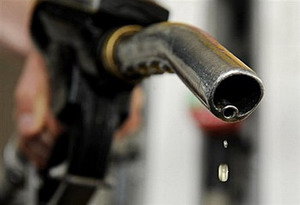(单词翻译:单击)
If only oil-producing countries that got into trouble could merge, bring in fresh management, lay off citizens, cut costs and restructure their operations. At this point in the energy cycle, betting on a national merger wave similar to the corporate one that created supermajors such as ExxonMobil and BP in the late 1990s would be a good investment.
要是陷入困境的石油生产国可以合并、引入新的管理层、辞退公民,削减成本和重组业务就好了。在能源周期的这个时点,押注于国家合并潮将是非常棒的投资,它类似于在上世纪90年代末造就了埃克森美孚(ExxonMobil)和英国石油公司(BP)等超级石油巨头的那种企业并购潮。

Brazil could merge with Venezuela, helping to solve both the Petrobras scandal and the latter’s lurch toward default. The United Arab Emirates or Saudi Arabia could roll up Nigeria and Russia. Norway could acquire Scotland from the UK.
巴西可以与委内瑞拉合并,帮助解决巴西国家石油公司(Petrobras)丑闻以及委内瑞拉跌跌撞撞走向违约的问题。阿联酋或者沙特阿拉伯可以与尼日利亚和俄罗斯合并。挪威可以向英国收购苏格兰。
But countries are not companies, for better or worse. Peaceful mergers are rare. Demergers and spin-offs tend to be more common, along with the occasional hostile takeover and Russian bear hug. Unlike shareholders, who tend to be a fairly dispassionate bunch, citizens have emotional ties.
但不管怎样,国家不是公司。和平的合并是很罕见的。分拆和剥离往往更为常见,偶尔会有敌意收购和俄罗斯的“熊抱”。与往往相当冷静的股东不同,公民们对国家有着情感上的纽带。
So here is another investment thesis: sell countries, buy companies. To be exact, short fragile oil exporters, particularly those suffering from corruption and the resource curse, and buy the oil majors. They both look painfully vulnerable to falling oil and gas prices (and in urgent need of this week’s bounce) but companies are better at adjusting to a change in circumstances.
因此这里有另一种投资主题:卖出国家,买入公司。准确地说,做空脆弱的石油出口国,尤其是那些腐败横行和遭受“资源诅咒”的国家,买入石油巨头公司的股票。它们看起来都深受原油和天然气价格下跌之苦(亟需像本周这样的反弹),但公司更擅长适应环境变化。
BP and BG, the UK oil and gas companies, both did so this week, applying the brakes sharply to capital investment plans and declaring that the turn in the commodity cycle is like that of 1986, when the price of crude oil dropped to $10 a barrel, having been stable at $30 for the previous three years. This is no time for waiting and hoping for an energy price recovery, they declared.
英国的BP和英国天然气集团(BG)最近全都做出了调整,它们对资本投资计划“急刹车”,并宣称此次大宗商品周期的转向类似于1986年,当时原油价格下跌至每桶10美元,而在此前三年油价一直稳定在每桶30美元的水平。它们表示,现在不是等待并预期能源价格复苏的时候。
Bob Dudley, BP’s chief executive, did a fine job of building a hopeful narrative out of a dire situation. “You have got to make the cheque book balance and if you are in denial, the longer that you don’t respond, the more difficulty you get into,” he told journalists. BP’s sale of $40bn of assets to cover the $43bn (so far) cost of the 2010 Gulf of Mexico oil spill looks prescient in hindsight.
BP首席执行官鲍勃•达德利(Bob Dudley)在构建一个有望摆脱可怕局面的叙事方面做得不错。他向记者们表示:“你不得不平衡账目,如果你回避这一点,你拖的时间越长,陷入的麻烦就越深。”BP出售400亿美元的资产,以覆盖2010年墨西哥湾石油泄漏事件(迄今为止)所导致的430亿美元成本。事后来看,这种做法颇有先见之明。
So far, BP and BG are at the aggressive end of the responses to a fall in the price of Brent crude from more than $100 a barrel last June to about $56 on Wednesday, after the recent rally. Exxon cruises onward like a supertanker and Royal Dutch Shell has announced only modest cuts to capital expenditure this year, saying that it is “not overreacting”.
迄今为止,BP和BG积极应对布伦特原油价格的下跌——在最近反弹之后,周三布伦特油价从去年6月的每桶100美元下跌至每桶56美元左右。埃克森美孚像一艘超级油轮一样扬帆前进,而荷兰皇家壳牌石油公司(Royal Dutch Shell)已经宣布今年适度削减资本支出,该公司表示,“这不是反应过度”。
The other majors can change course any time they wish and will have a clear incentive to do so if energy prices remain weak and tankers full of oil start to be berthed in terminals as storage. As Mr Dudley emphasised, maintaining dividends to investment funds that depend on them is “the first priority” — developing fields in the Gulf of Mexico or off Brazil’s coast can wait.
其他石油巨头可能随时改弦易辙,而且如果能源价格继续保持疲弱,装满原油的油轮开始像仓库一样停泊在终端,它们将有明显的动力这么做。正如达德利所强调的那样,维持石油投资基金的股息是“第一要务”——可以以后再开发墨西哥湾或者巴西海岸外的油田。
Indeed, in terms of cash flow, oil companies can perform better in a downturn than in a boom, when everyone from governments to rig workers and oil services companies takes a slice of the action. When the oil price falls, they are in a better position to bargain.
实际上,就现金流来说,石油公司在低迷时期的表现好于景气时期——在景气时期,从政府到钻井平台和石油服务公司工人等所有人都要分得一杯羹。当油价下跌的时候,石油公司讨价还价的能力更强。
“In an upcycle, everyone thinks the returns will be fantastic but it never quite happens,” says Martijn Rats, an energy analyst at Morgan Stanley. The oil industry, given half a chance, is inefficient and spendthrift. It loves to throw cash at new prospects, paying whatever it takes to pump oil, only for the proceeds to be taxed heavily by opportunistic governments.
摩根士丹利(Morgan Stanley)的能源分析师马丁•拉茨(Martijn Rats)表示:“在上升周期,所有人都认为回报将非常丰厚,但这种情况从来没有发生过。”石油行业只要稍有机会就会变得低效和挥霍无度。它喜欢向新的油田远景构造投钱,不惜一切代价开采原油,最后获得的收益还被机会主义的政府课以重税。
Morgan Stanley estimates that it cost the majors $72 to locate, develop, produce and pay tax on each barrel in 2012-13 — more than the $69 they made in revenue. Over the previous decade, taxes rose, wages outpaced the private sector average by 35 per cent, and labour productivity in exploration halved: it took twice as many workers to produce each barrel of oil.
摩根士丹利估计,在2012年至2013年度,石油巨头们花在选址、开发、生产和纳税上的成本是每吨72美元,比它们每桶原油获得的69美元收入还要高。在过去十年里,税收增加,平均薪资增幅比私人行业高出35%,而勘探上的劳动生产率则下降一半:生产每桶原油所需的工人数量增长了一倍。
The more you waste, the easier it is to cut back. Not only can the majors reduce capital expenditure by halting projects, but they can demand better terms. Oil services companies are squeezed and governments are told that new fields will not open without tax breaks. The industry cuts off its stakeholders to protect its shareholders.
你浪费的越多,就越容易削减。石油巨头不仅能通过暂停项目来削减资本支出,它们还可以要求更优惠的条款。石油服务公司受到挤压,政府被告知,如果没有税收优惠,新的油田将不会启动。石油行业通过削减其利益相关者的利益来保护股东的利益。
This capacity to reduce costs quickly is beyond most countries, even those with well-managed state oil producers and low-cost reserves. The fall in the oil prices depletes their tax receipts and damages economies that rely heavily on the energy industry. They cannot easily adjust by slashing public services and reducing the population.
大多数国家都不具备这种迅速削减成本的能力,甚至那些有着管理出色的国有石油生产商和低成本储量的国家也不例外。油价下跌减少了它们的税收收入,破坏了严重依赖能源行业的经济。它们无法轻易地通过砍掉公共服务和减少人口来进行调整。
Meanwhile, just as oil exporters need to raise extra revenue, the oil majors cut back capital expenditure on new projects. Mr Dudley estimates that the price fall equates to a $1.6tn shift in value from oil-producing countries to oil-consuming countries. Exporters cannot escape the impact of that; they largely have to live with it.
与此同时,就在石油出口国需要提高额外收入之际,石油巨头削减了新项目上的资本开支。达德利估计,油价下跌相当于石油生产国将价值1.6万亿美元的收入转移至石油消费国。石油出口国无法逃避这种影响,它们在很大程度上不得不适应这种情况。
In countries plagued by corruption, with officials taking bribes from oil companies, the problem is even greater. Maria das Graças Foster, chief executive of Petrobras, has resigned over a scandal that has damaged Brazil’s economic growth. Moody’s estimates that Venezuela will face a $39bn funding gap on its external debt this year.
在腐败横行、官员向石油公司收受贿赂的国家,问题甚至更为严重。巴西国家石油公司首席执行官玛丽亚•格拉卡斯•福斯特(Maria das Gra as Foster)因陷入一场破坏巴西经济增长的丑闻而被迫辞职。穆迪(Moody’s)估计,委内瑞拉今年偿还外部债务将面临390亿美元的资金缺口。
In good times, companies and countries are both prone to the resource curse — there is enough cash to give to rent-seekers without a danger of it running out. It is too tempting to sacrifice efficiency for more oil. In bad times, companies repair the damage; countries are stuck with it.
在市场景气时期,公司和国家全都容易遭受资源诅咒——它们有足够的资金给寻租者,而没有资金枯竭的风险。人们很容易牺牲效率来开采更多的石油。在市场低迷时期,公司修复受到的损害,而国家则只能苦苦撑着。


